electropoetics
Creating New Constraints: Toward a Theory of Writing as Digital Translation
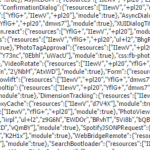
In response to Mencia, Pold, and Portela, Belgian poet and scholar Jan Baetans suggests that we might view the field of trans-medial literature as an offshoot of translation studies (and not the reverse). In any case, whether we approach e-lit from a medial or linguistic standpoint, scholars do well to observe a "merger of translation and adaptation studies."
Riposte to Jan Baetens, Photo Narratives and Digital Archives, or The Film Photo Novel Lost and Found
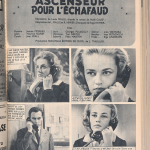
In response to Baetans's essay, David Roh sees an occasion for moving digital literary studies beyond the archive toward a a living repository of anarchistic, ongoing communitarian activity with a "resurgent cultural impact."
Electronic Literature Translation: Translation as Process, Experience and Mediation
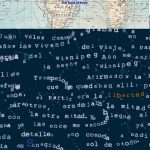
"[T]ranslation is merely a preliminary way of coming to terms with the foreignness of languages to each other." (Walter Benjamin, "The Task of the Translator" [1921])
Postcinematic Writing
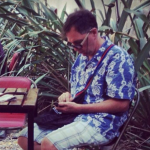
Adrian Miles (1960 — 2018) was an early theorist, practitioner and teacher of cinematic hypertext and networked, "writerly" video. In memory of his innovative research in these fields, ebr presents this short dialogue between Adrian and founding ebr publisher Mark Amerika. The text is republished from META/DATA: A Digital Poetics, by Mark Amerika, with permission from The MIT Press.
Getting Lost in Narrative Virtuality
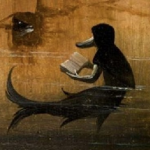
Repetition, gestural abstraction and depictions of noise; an absence of narrative causation, a multiplicity of micro-narratives and opacity of material communications: The digital narrativity observed and created by Will Luers is equally applicable to the films of Stanley Kubrick or the paintings of Hieronymous Bosch - which implies a longer continuity (and less radical transformation?) than we might have expected. Indeed, Luers argues that "networks and nonlinear systems" might better be understood as "something deep in our brains," even as narrative may be regarded "as a necessary construct, but not the complete picture of reality."